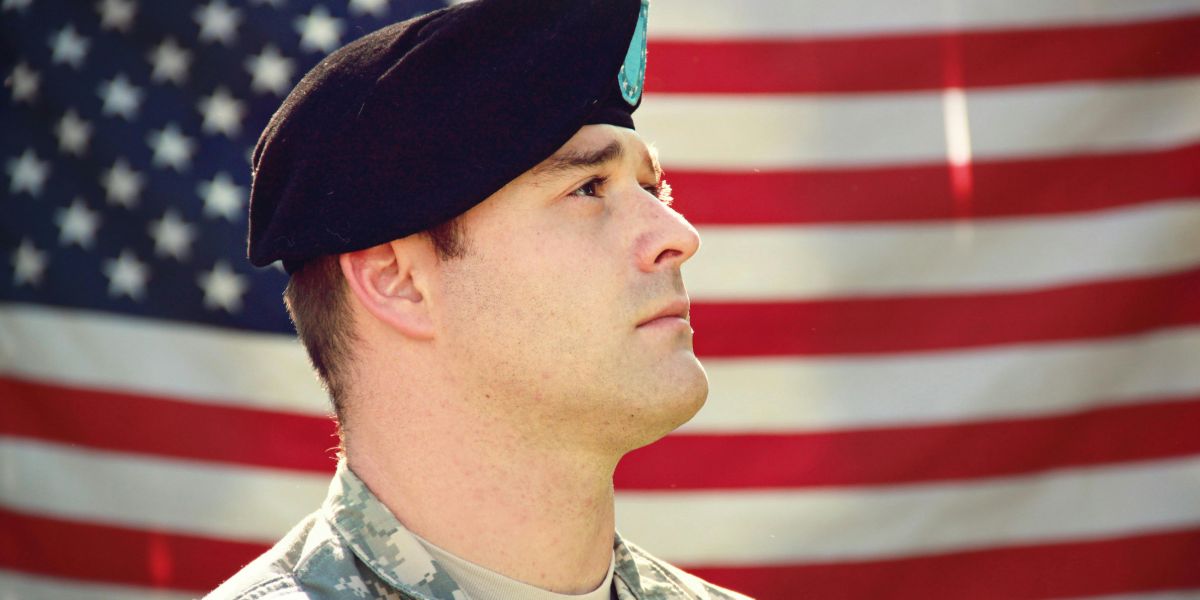What Is TriWest’s Role in Substance Use Disorder Treatment?
TriWest Healthcare Alliance plays a pivotal role in helping eligible veterans access substance use disorder (SUD) treatment through the VA Community Care Network (CCN). Though TriWest is not an insurer, it coordinates care between the VA and trusted community-based providers to ensure veterans receive comprehensive treatment, including detox, inpatient care, outpatient programs, telehealth, and long-term support.
1. Wide-Ranging Services
TriWest facilitates access to a full continuum of care, including medical detoxification, inpatient rehab, outpatient services, telehealth, and aftercare planning. This ensures that veterans can receive treatment that aligns with their level of need, from crisis intervention to long-term recovery support.
2. Evidence-Based Care
The providers within the TriWest network are required to use clinically proven, evidence-based approaches. These include Cognitive Behavioral Therapy (CBT), Medication-Assisted Treatment (MAT), trauma-informed care, and structured group therapies that improve long-term recovery outcomes.
3. Veteran-Centric Coordination
TriWest serves as a liaison between the VA and local treatment providers, ensuring each veteran receives services tailored to their military background and clinical profile. This coordination streamlines referrals and ensures treatment aligns with VA standards and veteran needs.
4. Holistic Support
TriWest-facilitated treatment often includes holistic services that address more than addiction—supporting physical, emotional, and psychological well-being. Mental health care, physical therapy, family counseling, and wellness programs help veterans heal in a balanced and sustainable way.
Accessing Substance Use Disorder Treatment Through TriWest
Accessing addiction treatment as a veteran can feel overwhelming, but TriWest Healthcare Alliance helps simplify the process. Through its coordination with the U.S. Department of Veterans Affairs (VA) and the Community Care Network (CCN), TriWest ensures that veterans receive timely, medically necessary care. Whether seeking help for alcohol use, opioid dependence, or co-occurring mental health challenges, veterans can follow a structured path to receive the treatment they deserve.
- VA Enrollment and Eligibility: The first step is enrolling in the VA Health Care System. Veterans must meet certain service and health criteria to become eligible for community-based addiction treatment covered through TriWest.
- Referral and Authorization: A VA primary care provider evaluates the veteran’s health status and determines if specialized addiction care is needed. If so, a referral is submitted to TriWest for approval based on medical necessity.
- Provider Coordination: Upon approval, TriWest connects the veteran with in-network treatment providers that align with their clinical profile, treatment preferences, and geographic location.
- Choosing the Right Facility: Veterans can work with TriWest and their VA care team to identify a treatment center that offers services appropriate to their level of need—ranging from inpatient detox to outpatient counseling and telehealth options.
- Pre-Treatment Assessment: Before starting treatment, the chosen provider conducts a comprehensive assessment to determine the most effective therapeutic approach and level of care.
- Receiving Care: Once admitted, the veteran receives personalized treatment, including therapies such as CBT, MAT, or holistic care depending on the program. Regular updates are sent to the VA to monitor progress.
- Aftercare and Continued Support: Following treatment, veterans are supported with aftercare planning, outpatient sessions, alumni networks, and relapse prevention strategies to sustain their recovery long term.
Understanding and navigating the path to treatment doesn’t have to be complicated. With TriWest acting as a bridge between the VA and top-tier rehab centers—including luxury options like Carrara—veterans gain access to high-quality care in a setting that respects their service and dignity. Learn more about the step-by-step process in our in-depth guide on TriWest substance abuse treatment options, and take the first step toward healing today.
Coverage for Various Substance Use Disorders
Veterans face unique challenges when it comes to substance use, often tied to trauma, chronic pain, or co-occurring mental health conditions. TriWest facilitates access to evidence-based, veteran-centered addiction treatment services through the VA Community Care Network (CCN). These programs are designed to address the complex, multifaceted nature of substance use disorders with compassionate care, clinical precision, and long-term recovery planning. Whether the addiction involves alcohol, opioids, stimulants, or prescription medications, TriWest ensures that veterans can receive specialized treatment that respects both their medical needs and service history.
- Alcohol Addiction: Alcohol use disorder is one of the most common forms of addiction among veterans. TriWest-connected treatment centers offer medically supervised detoxification, 24/7 residential support, individual and group counseling, and trauma-informed therapies. Veterans also benefit from aftercare planning and relapse prevention strategies that address long-term sobriety in both civilian and veteran-specific environments.
- Opioid Addiction: Opioid misuse often begins with prescribed medications for chronic pain. TriWest covers access to Medication-Assisted Treatment (MAT), which uses FDA-approved drugs like buprenorphine, methadone, or naltrexone to ease withdrawal symptoms and reduce cravings. These medications are combined with behavioral therapies such as Cognitive Behavioral Therapy (CBT) and Motivational Interviewing (MI), creating a comprehensive treatment plan tailored to each veteran’s situation.
- Stimulant Addiction: Cocaine and methamphetamine use can result in severe psychological and behavioral health complications. Treatment through TriWest emphasizes structured, evidence-based therapy programs. These may include intensive outpatient therapy, contingency management, and trauma resolution therapies. Providers focus on helping veterans rebuild emotional stability, develop coping strategies, and address any underlying mental health issues contributing to stimulant use.
- Prescription Drug Addiction: Prescription medications such as benzodiazepines, sedatives, and opioid pain relievers can lead to dependency when misused. Veterans are particularly vulnerable due to chronic conditions and service-related stressors. TriWest-facilitated care includes supervised detox protocols, medication tapering plans, psychotherapy, and dual diagnosis treatment. These programs help veterans safely wean off medications while addressing the root causes of dependency, including PTSD and anxiety.
Every addiction is unique, and TriWest’s role is to ensure that veterans have access to the right level of care based on their diagnosis, goals, and history of service. With access to a nationwide network of credentialed providers—including luxury rehabs like Carrara Treatment Wellness & Spa—veterans are empowered to take control of their recovery journey in an environment of support, dignity, and respect. For more information on how TriWest can help you or a loved one access specialized treatment, explore our full resource on TriWest substance abuse treatment options.
Flexible Outpatient Treatment Options
Not every veteran requires or can commit to residential treatment. TriWest understands the need for flexibility and continuity of care, which is why it supports a full range of outpatient addiction treatment options. These programs are ideal for veterans who must continue managing responsibilities at home, work, or school while receiving the professional support needed for recovery. By offering scalable intensity levels and various formats, outpatient care ensures that treatment fits into each veteran’s lifestyle and recovery phase.
- Standard Outpatient Therapy: This level of care involves weekly or bi-weekly sessions with licensed addiction specialists, psychologists, or counselors. Veterans can explore individual therapy, group therapy, or family counseling sessions that focus on skill-building, emotional regulation, and relapse prevention—without disrupting their daily routines.
- Intensive Outpatient Programs (IOP): IOPs offer a more structured and time-intensive option than standard outpatient care, typically involving therapy 3–5 days per week for several hours each day. These programs are ideal for veterans transitioning from inpatient care or those who need more support than occasional counseling but still want to live at home during treatment.
- Partial Hospitalization Programs (PHP): PHPs are the most intensive form of outpatient care and often serve as a bridge between inpatient treatment and standard outpatient therapy. Veterans attend full-day sessions, multiple days per week, where they receive therapy, psychiatric care, and medical monitoring—all without overnight stays. PHPs are suitable for individuals with complex needs who require frequent supervision but prefer not to be admitted into a residential facility.
- Ambulatory Detox: For veterans who meet clinical safety criteria, detoxification can be performed in an outpatient setting. Ambulatory detox provides medical oversight and symptom management during withdrawal without hospitalization. This option is best suited for individuals with mild to moderate physical dependency and strong support systems at home.
Outpatient care offers a critical blend of flexibility and effectiveness, allowing veterans to receive comprehensive treatment while maintaining autonomy. Whether transitioning from inpatient care or beginning the recovery journey at home, TriWest’s outpatient options provide continuity, structure, and access to compassionate support every step of the way. To explore available outpatient programs and find a veteran-friendly provider, visit our guide to TriWest substance abuse treatment options.
Inpatient Treatment Options for Veterans
For many veterans struggling with moderate to severe substance use disorders or co-occurring mental health conditions, inpatient treatment offers the safest and most structured path to recovery. Through TriWest’s coordination with the VA Community Care Network, veterans can access inpatient rehab programs at accredited facilities that specialize in 24/7 care, medical stabilization, and intensive therapy. These programs are especially beneficial for individuals needing detox, those at risk of relapse, or those without a supportive home environment during early recovery.
- Medical Detoxification: Many inpatient programs begin with a medically supervised detox, where veterans are closely monitored while substances are safely cleared from their system. This stage helps manage withdrawal symptoms, reduce complications, and prepare individuals for the therapeutic phase of treatment.
- Residential Inpatient Rehab: Inpatient rehab provides round-the-clock care in a structured, therapeutic environment. Veterans live on-site for 30 to 90 days (or longer, depending on their needs), receiving a combination of individual counseling, group therapy, trauma resolution, medication management, and recreational or holistic therapies.
- Dual Diagnosis Treatment: Many veterans suffer from both substance use and co-occurring mental health disorders such as PTSD, anxiety, or depression. Inpatient programs that offer integrated dual diagnosis care treat both conditions simultaneously, improving long-term outcomes and emotional resilience.
- Veteran-Specific Programming: Some inpatient centers offer programming tailored specifically to the military community. These services may include trauma-informed care, peer support from fellow veterans, and therapists trained in military culture—creating an environment where veterans feel understood and supported.
Inpatient treatment gives veterans the chance to step away from triggers and immerse themselves in healing—physically, mentally, and emotionally. With TriWest’s support, eligible veterans can access high-quality inpatient rehab programs that combine clinical excellence with compassion and structure. If you or a loved one may benefit from residential care, explore our recommended providers and detailed guide on TriWest substance abuse treatment options.
The Role of Family in the Recovery Process
Family involvement plays a powerful and often transformative role in a veteran’s recovery from substance use disorders. TriWest-supported treatment programs recognize that addiction affects more than just the individual—it impacts spouses, children, parents, and extended family members. Including loved ones in the treatment process not only strengthens the veteran’s support network but also helps the family heal as a unit. Through facilitated family therapy sessions, veterans and their families can begin to rebuild trust, improve communication, and address unresolved conflicts in a safe, therapeutic setting.
Education is another cornerstone of family engagement. By learning about the nature of addiction, the triggers that fuel it, and the steps involved in recovery, families become more empathetic and effective allies. Understanding addiction as a chronic disease rather than a moral failing helps shift perspectives and reduce stigma. This knowledge empowers family members to offer informed encouragement and make meaningful contributions to the veteran’s ongoing recovery—especially during vulnerable moments or transitions out of treatment.
Maintaining healthy boundaries is equally critical for long-term success. TriWest-connected programs guide families in developing boundaries that promote accountability while fostering emotional support. Families are encouraged to take part in aftercare planning, attend support groups like Al-Anon or SMART Recovery Family & Friends, and remain involved through the veteran’s recovery journey. This level of active participation creates a stable environment where both the veteran and their loved ones can thrive, ultimately reducing relapse risks and strengthening the foundation for lifelong wellness.
Why Choose Carrara Rehab for Veteran Recovery?
At Carrara Rehab, we provide a veteran-friendly environment that blends five-star luxury with clinical excellence. Our Malibu-based facilities offer an unmatched level of discretion, comfort, and personalized care. As part of the TriWest network, we are equipped to deliver VA-authorized treatment that respects your service and supports your recovery goals.
Key Features of Carrara Rehab
- Ultra-Luxury Amenities: Private suites, gourmet meals, spa therapies, pools, and ocean views.
- Personalized Treatment Plans: Tailored to each veteran using CBT, EMDR, and holistic techniques.
- Holistic Therapies: Yoga, sound baths, acupuncture, cranial sacral therapy, and mindfulness practices.
- Discreet and Exclusive: Ideal for high-profile individuals or those seeking maximum confidentiality.
Explore TriWest-Covered Luxury Rehab Options
Looking for a luxury rehab that accepts TriWest? Explore our curated list of top TriWest-accepting rehabs in California, featuring premier locations such as The Malibu Beach House, The LA Carrara House, and The Hollywood Hills Carrara House.
Ready to Begin Your Recovery?
Join our elite rehab program where clinical precision meets serenity and personalized care. Carrara is dedicated to supporting veterans in building a healthier, substance-free future in a setting that reflects respect, comfort, and healing.
- Streamlined Admission: Experience hassle-free intake with help every step of the way.
- Continuum of Care: From inpatient care to alumni programs, we’re with you for the long haul.
Take the first step today and let Carrara Rehab guide you toward recovery with dignity and distinction.
Learn more about TRICARE and TriWest rehab options here.
Britney Elyse has over 15 years experience in mental health and addiction treatment. Britney completed her undergraduate work at San Francisco State University and her M.A. in Clinical Psychology at Antioch University. Britney worked in the music industry for several years prior to discovering her calling as a therapist. Britney’s background in music management, gave her first hand experience working with musicians impacted by addiction. Britney specializes in treating trauma using Somatic Experiencing and evidence based practices. Britney’s work begins with forming a strong therapeutic alliance to gain trust and promote change. Britney has given many presentations on somatic therapy in the treatment setting to increase awareness and decrease the stigma of mental health issues. A few years ago, Britney moved into the role of Clinical Director and found her passion in supervising the clinical team. Britney’s unique approach to client care, allows us to access and heal, our most severe cases with compassion and love. Prior to join the Carrara team, Britney was the Clinical Director of a premier luxury treatment facility with 6 residential houses and an outpatient program




